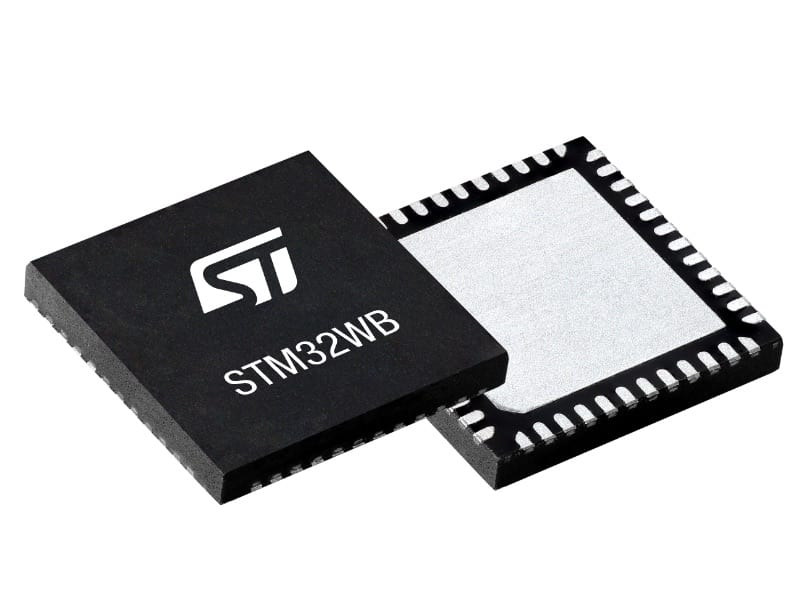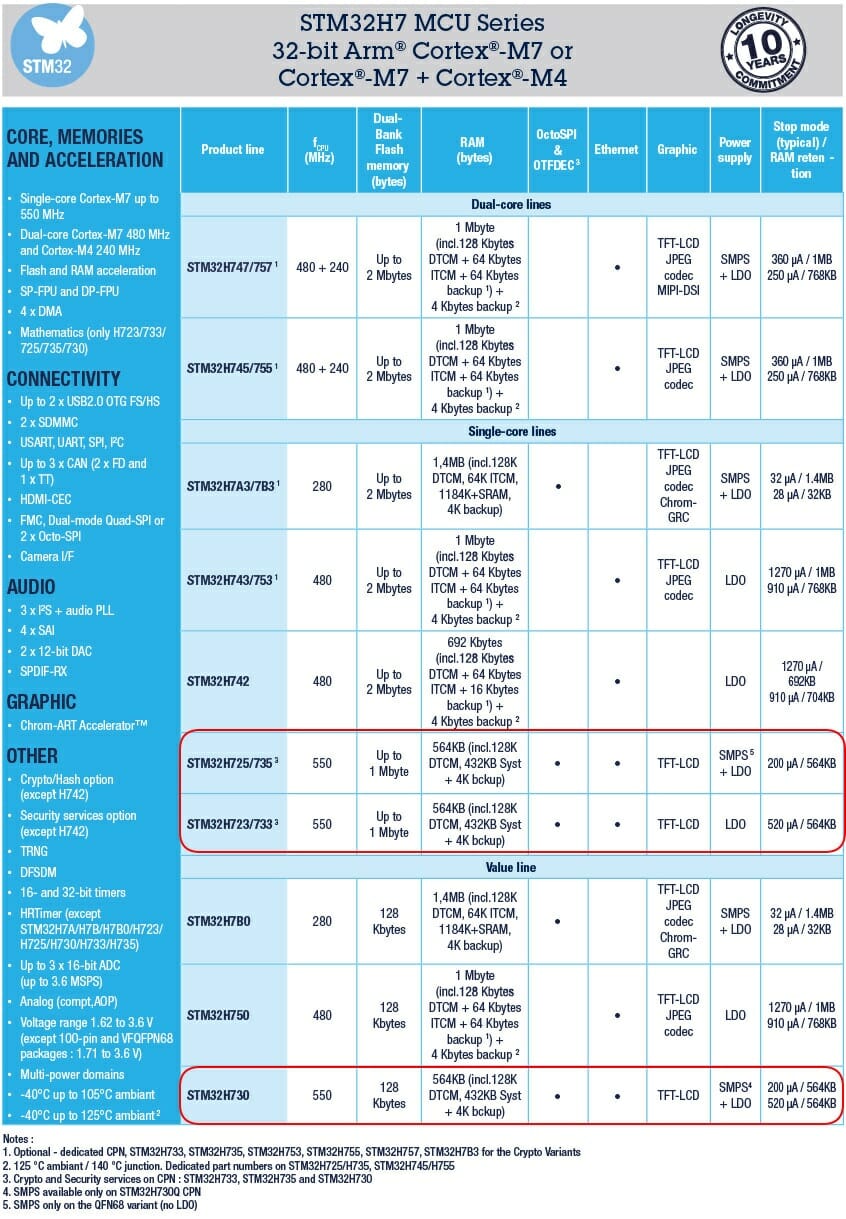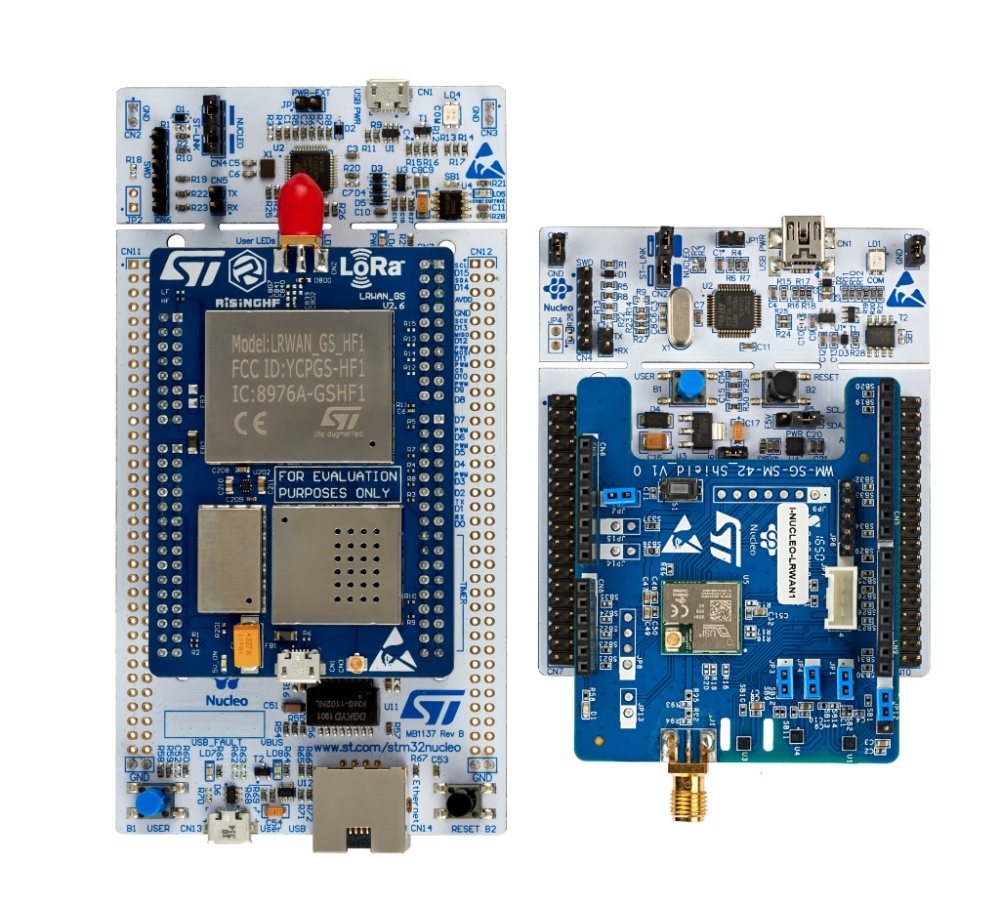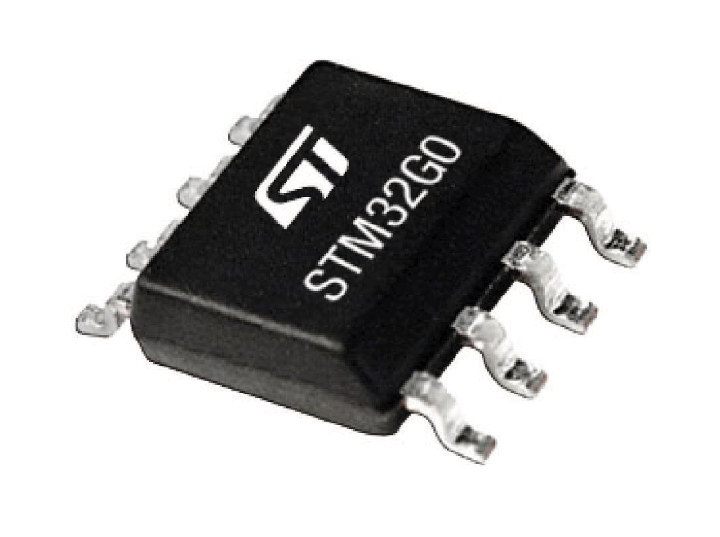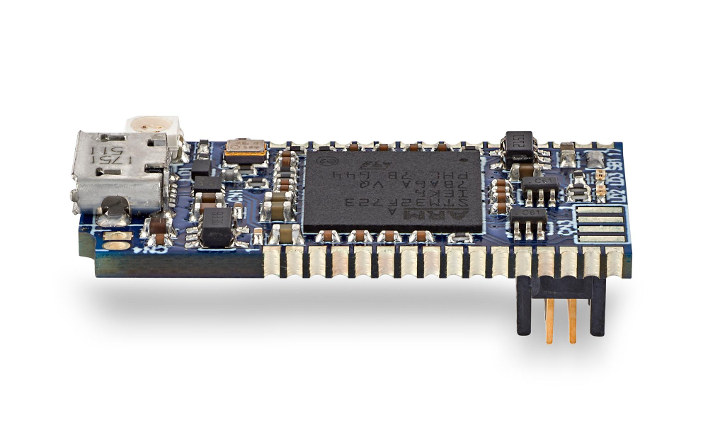STMicro introduced the first wireless STM32 microcontrollers in 2018 with STM32WB Cortex-M4/M0+ MCU family equipped with Bluetooth 5.0 and 802.15.4 radios, and they followed earlier this year with STM32WL Cortex-M LoRa SoC. The company has not just announced yet another wireless STM32 family but instead added the more affordable STM32WB35 and STM32WB30 chips that can be obtained for under $2 in quantities. The new STM32WB microcontroller enabled a low BOM cost thanks to their memory configuration. Specifically, STM32W30 comes with 256KB flash while STM32W35 features 512 KB flash, and both offer 96 KB of RAM. This compares to STM32WB55 will up to 1MB flash and 256KB of RAM. Apart from the lower memory and flash capacity, the new wireless MCUs have basically the same features as other members of the STM32WB family with 16-bit ADC, quad-SPI interface (STM32WB35 only), as well as Bluetooth Low Energy 5.0, Zigbee 3.0, and OpenThread […]
New STM32H7 Cortex-M7 MCUs Clock at 550 MHz, Feature Octal SPI Flash and Ethernet Interfaces
STMicro launched STM32H7 single-core Cortex-M7 microcontroller family a while ago, followed by some dual-core Cortex-M7/M4 models, with most clocked up to 480 MHz. The company has now announced five faster parts clocked at up to 550 MHz with STM32H723, STM32H733, STM32H725, STM32H735, and STM32H730 which STMicro claims is “the fastest core speed in the market among MCUs that integrate Flash storage on-chip to run deeply embedded applications”. The embedded flash storage is important, as you may now NXP i.MX RT1170 Cortex-M7/M4 crossover processor can reach up to 1 GHz but does not include flash storage. Key differences in STM32H7 550 Mhz MCUs We’ve highlighted the five new microcontrollers in the table above, and beside the higher 550 MHz frequency delivering 2778 CoreMark and 1177 DMIPS, we can see those are the only parts that support both OctoSPI flash and Ethernet, and all five parts are designed for HMI applications with […]
STMicroelectronics Introduces Zigbee 3.0 to the STM32WB55 microcontrollers
STMicroelectronics has added Zigbee 3.0 support to its STM32WB55 wireless microcontroller family using the Zigbee PRO protocol stack. The STM32 Wireless MCU (STM32WB55) was launched last year with a dual-core Arm Cortex-M4 CPU and Cortex M0+ core, as well as Bluetooth 5 and 802.15.4 radios. STMicro is hoping to expand the applications of the STM32WB into areas like home automation as Zigbee 3.0 is making brands choose Zigbee for their smart-home connectivity solution, smart-lighting, smart-building, mesh IoT connectivity, and many more. The STM32WB55 microcontrollers already provide support for Thread and Bluetooth 5.0 and the inclusion of the Zigbee connectivity will take this to the next level. The STM32WB55 Zigbee 3.0 software includes support for the Exegin Zigbee PRO protocol stack which is available for free. To ease development and deployment, STM32WB Zigbee solution supports 46 Zigbee 3.0 clusters and a further 21 clusters support legacy products and with the Zigbee 3.0 […]
MWC 2020 Cancelled, Several Companies Withdraw from Embedded World 2020 due to COVID-19
We’ve already covered the impact of the coronavirus on shipping and manufacturing from China, and it now looks like it may take longer than expected before things go back to normal. The WHO has now an official name for the disease: COVID-19 (COrona VIrus Disease 2019), and the impacts of the virus go far beyond China, and two large events usually taking place in February will either be canceled or scaled back. After several companies decided to pull out of the event, GSMA decided to completely cancel Mobile World Congress 2020 (aka MWC 2020): Since the first edition of Mobile World Congress in Barcelona in 2006, the GSMA has convened the industry, governments, ministers, policymakers, operators and industry leaders across the broader ecosystem. With due regard to the safe and healthy environment in Barcelona and the host country today, the GSMA has cancelled MWC Barcelona 2020 because the global concern […]
STMicroelectronics Introduces Affordable LoRa Development Packs For All User Types
STMicroelectronics has recently announced the launch of a new set of LoRa Development packs, which are not only affordable, but they are aiming to a large pool of users from big organizations, small companies, hackers, engineers, students, and hobbyists. The ready-to-use development packs are aimed for applications bent on leveraging LoRa ’s long-range, low-power wireless IoT connectivity for tracking, positioning, metering, and many related applications. STMicroelectronics is releasing the P-NUCLEO-LRWAN2 pack and P-NUCLEO-LRWAN3 pack. Both packs provide a complete LoRaWAN development kit, and they include gateways, end-nodes, and ST tools, which are all based on the STM32 Nucleo evaluation boards. The LoRa gateway on both packs is based on the STM32 Nucleo-144 development board, NUCLEO-F746ZG. The STM32 Nucleo-144 development board with STM32F746ZG MCU supports Arduino, ST Zio, and Morpho connectivity. The Gateway header pins are exposed out to facilitate more development, and they support interfacing with LoRaWAN network-server providers LORIOT, Actility, myDevices Cayenne for LoRa […]
STMicro Launches the first 8-pin STM32 Microcontrollers
At the end of last year, STMicro introduced what they claim is the first 90nm mainstream microcontroller with STM32G0 Arm Cortex-M0+ MCU clocked at 64 MHz. At the time, the family included parts with 24, 32, 48 and 64 pins packages, but there were also plans for 8-pin and 100-pin STM32G0 microcontrollers. The company has now just announced availability for the first 8-pin STM32 microcontrollers thanks to four new STM32G0 SKUs with up to 8KB RAM and 32KB flash in an SO8N package. The 90nm process node and simpler design make the new microcontrollers most suitable for cost & energy-conscious applications governed by battery-capacity limits, eco-design legislation, or market expectations such as appliance energy ratings. 8-pin STM32 Microcontrollers Available Now STM32G030J6 is part of STM32G0 Value Line with 32KB flash and 8KB memory, as well as 6 I/O pins supporting GPIO, SPI, I2C, and UART outputs. STM32G031J6, STM32G031J4, and STM32G041J6 […]
STMicro Launches $10 STLINK-V3mini Mini Probe for STM32 MCUs
Last year, we reported STMicroelectronics launched STLink-V3 debugger & programmer for STM8 & STM32 microcontrollers that added I2C, SPI, and CAN interfaces compared the previous STLink-V2 model. It’s not particularly expensive either at $35, but if you ever wanted something more compact and cheaper, the company has now introduced STLink-V3mini debugger going for under $10. STLINK-V3Mini key features and specifications: JTAG / serial wire debugging (SWD) specific features: 3 V to 3.6 V application voltage support and 5 V tolerant inputs JTAG communication support SWD and serial wire viewer (SWV) communication support Virtual COM port (VCP) specific features: 3 V to 3.6 V application voltage support on the UART interface and 5 V tolerant inputs VCP frequency up to 15 MHz USB – Micro USB 2.0 connector for power and connection to host computer Misc – 2x color LEDs: communication, power; STDC14 signals protection Dimensions – 30 x 15 mm […]
Arm Techcon 2019 Schedule – Machine Learning, Security, Containers, and More
Arm TechCon will take place on October 8-10, 2019 at San Jose Convention Center to showcase new solutions from Arm and third-parties, and the company has now published the agenda/schedule for the event. There are many sessions and even if you’re not going to happen it’s always useful to checkout what will be discussed to learn more about what’s going on currently and what will be the focus in the near future for Arm development. Several sessions normally occur at the same time, so as usual I’ll make my own virtual schedule with the ones I find most relevant. Tuesday, October 8 09:00 – 09:50 – Open Source ML is rapidly advancing. How can you benefit? by Markus Levy, Director of AI and Machine Learning Technologies, NXP Over the last two years and still continuing, machine learning applications have benefited tremendously from the growing number of open source frameworks, tools, […]


